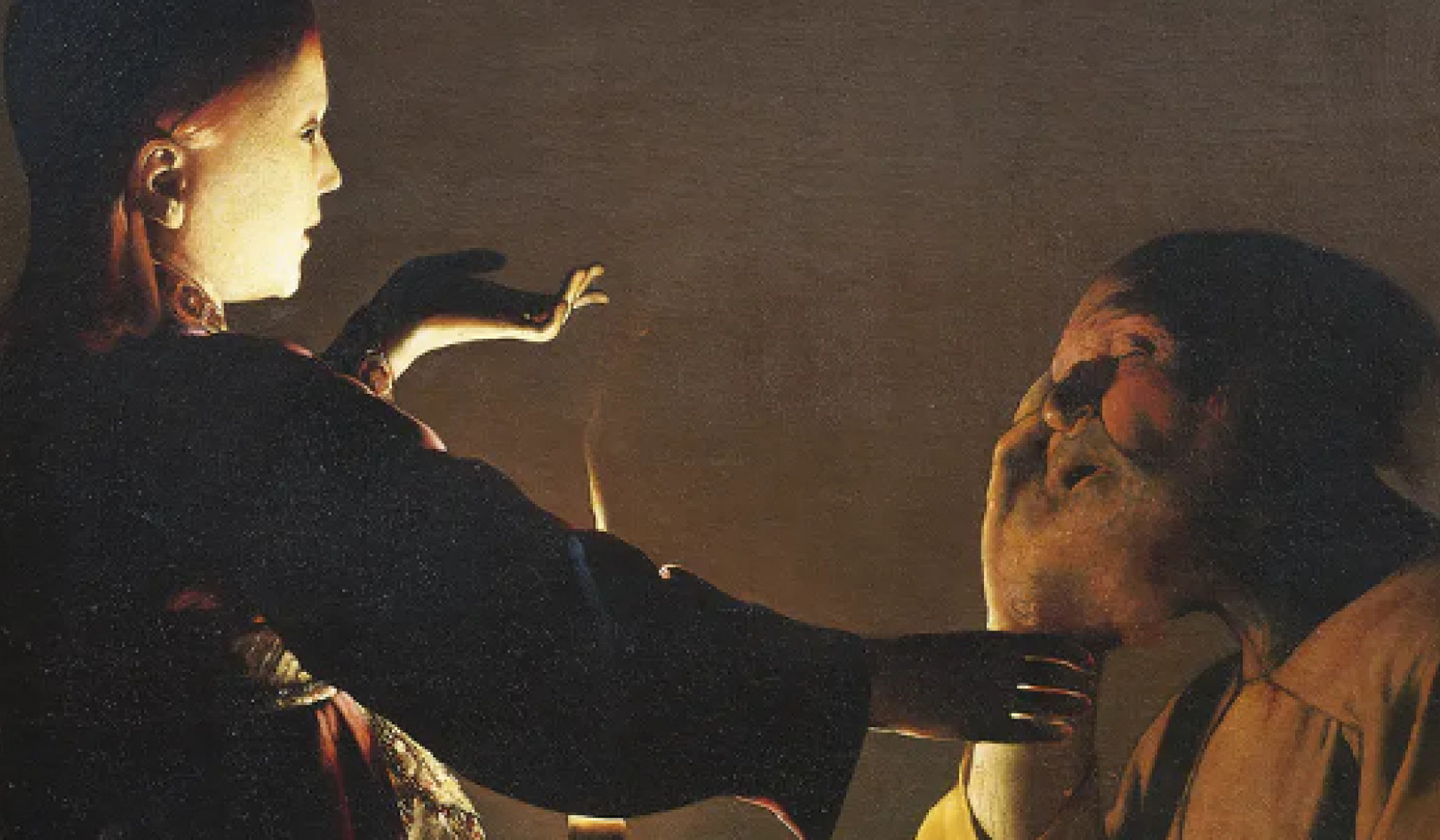
Is there anything going on in your life that just wears you out? A thankless job, a chronic illness, a troubled relationship? Have you gone over and over this situation or circumstance without finding a solution or a way out?
When a problem resists solving, it’s often because we have unknowingly limited the range of possible solutions. That happens because we have looked at the problem in the same way for a long time. Forgiveness begins with the willingness to look at any difficult circumstance of your life in a new way. Forgiveness is not about letting anyone off the hook for a mistake, insult, or crime. Nor is it about trying to forget something that bothers you. In fact, forgiveness may first require that you look more deeply at whatever is bothering you, because looking more deeply at something in particular will be the first step into seeing everything differently. And seeing everything differently is the way of forgiveness.
When this volume was first published as A Little Book of Forgiveness in 1994, there was indeed something “little” in the way that I approached my subject matter. While learning and practicing forgiveness had made a profound difference in my life, I was still a little worried about pushing the idea too hard — as if it might be impolite to suggest too strongly that other people could benefit from giving up a grudge or changing a vengeful outlook. Less than a decade into my own spiritual discipline at the time, I was somewhat tentative about promoting all the advantages of it.
Fifteen Years Later...
Fifteen years later, I decided to revise and re-title the book in light of the greater understanding of forgiveness that I had developed since. This is the sixth edition over twenty-three years, during which I’ve realized that far from being a little undertaking, forgiveness is a disciplined and increasingly joyful approach to seeing and being that amounts to a new way of life. Nowadays I have a much better idea of what that means than I used to.
The way of forgiving certainly doesn’t mean becoming weak or passive, or using forgiveness to avoid conflicts. It does mean increasing one’s capacity to deal with challenging relationships and daunting circumstances, because less energy is wasted on pointless resentments and rehashing ancient injuries. Gradually, a habitually cynical state of mind can give way to a happier and more spontaneous response to the world.
Still, adopting forgiveness as a way of life does not mean becoming a saint who sees only the best in everyone. In fact, it may actually sharpen your perceptions of people’s flaws and failings, including your own. But when you see these problems with compassion rather than judgment, your own strength is immeasurably increased. Over time, what once seemed like shortcomings in another, or yourself, may be seen merely as differences that need have little or no negative impact on you.
The "Magic" of Forgiveness
This is the “magic” of forgiveness: the gradual lifting of sad and weighty judgments that may have once seemed absolutely necessary, without actually having served any useful purpose at all. As you learn to let go of unproductive judgments, your stress level will decrease, freeing up more positive energy for creativity, relationships, and the general enjoyment of life. Forgiveness is not the end of all stress and struggle, but it is an effective antidote to alienation and despair.
I’m sharing what I’ve learned about forgiveness. In a sense, I’m attempting to help others become attuned to the frequency of forgiveness: a clear tone of sane inner guidance in a world filled with the harsh static of fear, confusion, and vengeance.
At different times in my life, I’ve tried to change the way that others thought and behaved, through reporting, creative expression, and argument. But only forgiveness has substantially changed me for the better — by making me less angry and self-absorbed, and thus better able to relate to people fairly and compassionately.
Copyright 2017 by D. Patrick Miller.
Reprinted with permission of the publisher,
Hampton Roads Publishing Co.
Dist by Red Wheel Weiser, redwheelweiser.com
Article Source
The Forgiveness Book: Healing the Hurts We Don't Deserve
by D. Patrick Miller
 Forgiveness is the science of the heart; a discipline of discovering all the ways of being that will extend your love to the world and discarding all the ways that will not. This is a book about growing up, becoming whole, connecting to others, and becoming comfortable in one's own skin. It is inspirational, healing, and programmatic.
Forgiveness is the science of the heart; a discipline of discovering all the ways of being that will extend your love to the world and discarding all the ways that will not. This is a book about growing up, becoming whole, connecting to others, and becoming comfortable in one's own skin. It is inspirational, healing, and programmatic.
Click here for more info and/or to order this book.
About the Author
 D. Patrick Miller is the author of Understanding a Course in Miracles and The Way of Forgiveness. He is the leading historical chronicler of A Course in Miracles (ACIM) and a highly respected authority on its teachings. As a collaborator, ghostwriter, or principal editor, Patrick has helped other authors prepare manuscripts for such publishers as Viking, Doubleday, Warner, Crown, Simon & Schuster, Jeremy P. Tarcher, Hay House, Hampton Roads, and John Wiley & Sons. His poetry has been published in a number of magazines and several anthologies. He is the founder of Fearless Books.
D. Patrick Miller is the author of Understanding a Course in Miracles and The Way of Forgiveness. He is the leading historical chronicler of A Course in Miracles (ACIM) and a highly respected authority on its teachings. As a collaborator, ghostwriter, or principal editor, Patrick has helped other authors prepare manuscripts for such publishers as Viking, Doubleday, Warner, Crown, Simon & Schuster, Jeremy P. Tarcher, Hay House, Hampton Roads, and John Wiley & Sons. His poetry has been published in a number of magazines and several anthologies. He is the founder of Fearless Books.
Books by this Author
at

Thanks for visiting InnerSelf.com, where there are 20,000+ life-altering articles promoting "New Attitudes and New Possibilities." All articles are translated into 30+ languages. Subscribe to InnerSelf Magazine, published weekly, and Marie T Russell's Daily Inspiration. InnerSelf Magazine has been published since 1985.

Thanks for visiting InnerSelf.com, where there are 20,000+ life-altering articles promoting "New Attitudes and New Possibilities." All articles are translated into 30+ languages. Subscribe to InnerSelf Magazine, published weekly, and Marie T Russell's Daily Inspiration. InnerSelf Magazine has been published since 1985.



























